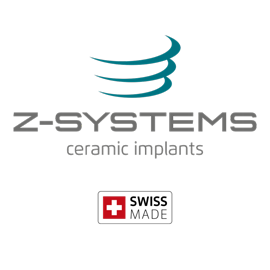When it comes to oral health, understanding the dynamics of plaque is crucial. Plaque plays a significant role in maintaining our dental well-being but also presents risks in excess. Delving into the nature of plaque reveals its dual impact and crucial role in maintaining the oral biome, alongside the importance of adopting meticulous oral hygiene practices to prevent dental diseases and ensure a balanced, healthy mouth.
What is Plaque?
Plaque is a soft, sticky film that accumulates on your teeth from leftover food particles and saliva. It teems with bacteria, feeding on the sugars and starches from your food. Plaque can lead to tooth decay and gum disease if not removed effectively. However, not all aspects of plaque are harmful.
Plaque plays essential roles in the oral environment:
- Protective Barrier: Plaque can act as a protective layer for the teeth against acidic environments, buffering attacks from harmful substances that can lead to tooth decay.
- Bacterial Home: It provides a habitat for beneficial bacteria essential for digesting food particles and preventing colonization by harmful pathogens.
Conversely, when plaque accumulates unchecked, it becomes a breeding ground for harmful bacteria, leading to tooth decay, gum disease, and other oral health issues. The goal is to maintain a healthy balance, ensuring the beneficial aspects of plaque can perform their roles without allowing detrimental effects to take hold.
Best Dental Habits for Managing Plaque
Effective plaque management involves a combination of daily habits and dietary choices:
- Brushing: Brush twice daily with fluoride toothpaste, using a soft-bristled brush to clean all tooth surfaces and the gum line gently.
- Flossing: Floss once daily to remove plaque and food particles between teeth and under the gumline.
- Mouthwash: Use an antimicrobial or fluoride mouthwash once or twice a day to reach areas missed by brushing and flossing.
- Diet: Limit intake of sugary and starchy foods. Opt for crunchy, high-fiber fruits and vegetables, and drink plenty of water to help clean teeth and neutralize acids.
- Chewing Gum: Chewing sugar-free gum after meals can stimulate saliva production, aiding in plaque and particle removal.
- Regular Dental Visits: Schedule professional cleanings and check-ups every six months to remove tartar and catch any issues early.
The Unique Advantage of Ceramic Dental Implants in Plaque Resistance
While daily oral hygiene practices are essential, it's equally crucial to consider the materials used in dental restorations and their interaction with plaque. Among the options available, ceramic dental implants stand out for their exceptional ability to resist excess plaque buildup. Ceramic implants, particularly those made from zirconia, offer significant advantages in maintaining oral health:
- Biocompatible Material: Made from materials like zirconia, ceramic dental implants are known for their high biocompatibility. They integrate well with the body's natural tissues, minimizing inflammatory responses and promoting a healthy oral environment.
- Smooth Surface Properties: One of the critical reasons ceramic implants are less prone to harboring plaque is their ultra-smooth surface. Unlike other dental materials with micro-pores where bacteria can accumulate, the polished surface of ceramic implants reduces the likelihood of surplus plaque adherence.
- Reduced Inflammation and Gum Disease Risk: The lower propensity for plaque accumulation on ceramic implants protects the implant and contributes to healthier surrounding gum tissue. By reducing the potential for plaque buildup, ceramic implants help lower the risk of gum disease and inflammation around the implant site, leading to better outcomes for implant patients.
- Aesthetic Benefits: Ceramic dental implants are the clear choice for their aesthetic qualities. Their natural resemblance to real teeth makes them highly sought after. Inherent resistance to excess plaque further underscores their value, offering cosmetic appeal and a practical advantage in oral hygiene.
Understanding plaque is essential for maintaining oral health. By adopting optimal dental habits, you can maintain healthy plaque levels. Practicing good oral hygiene and regular dental visits are crucial for everyone.
When considering ceramic dental implants, remember that this choice represents an investment in more than just your smile—it's a commitment to your overall health. Scroll down to book a consultation with an implant specialist today.






